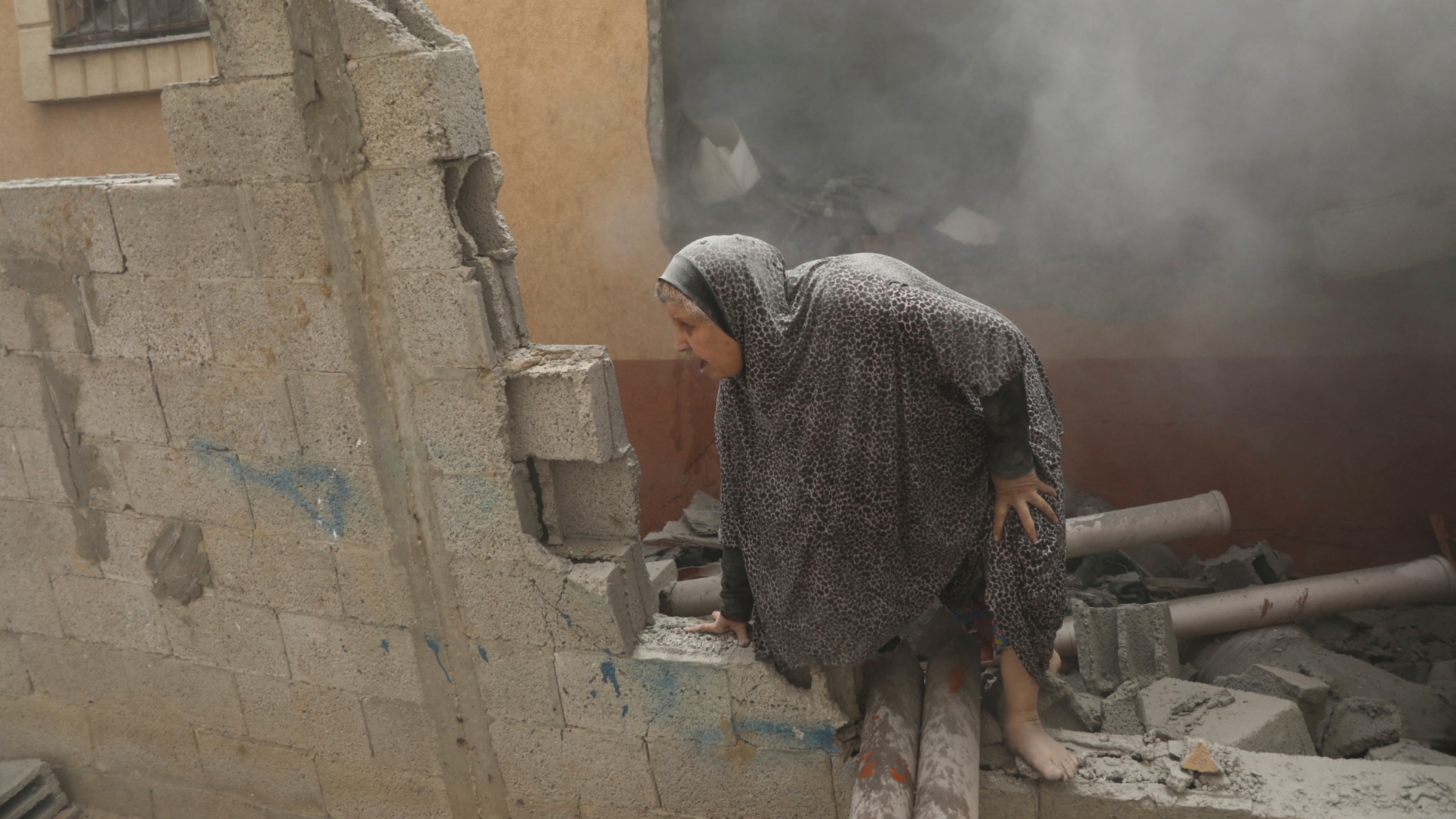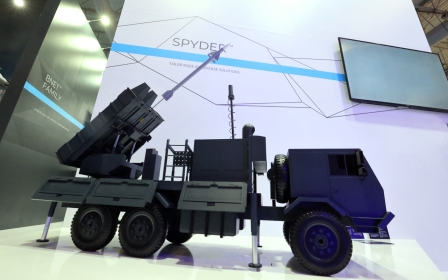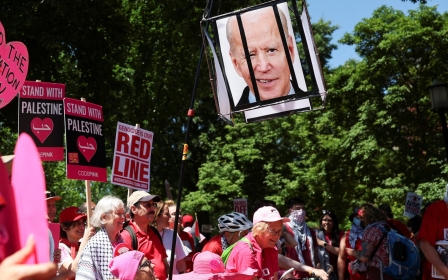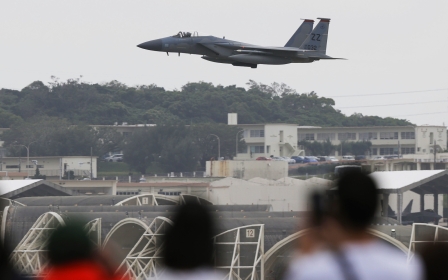Israel kills many in overnight strikes in central Gaza despite 'pause'

Israeli bombing of several areas in central Gaza killed at least 17 people overnight on Tuesday, according to local media reports, despite Israel's army declaring a "pause" in activities.
The attacks included a strike on the al-Rai family’s home in Nuseirat, in central Gaza, which killed at least eight people.
Palestine’s Wafa news agency also reported Israeli strikes on Rafah, southern Gaza, despite the Israeli army previously having declared "tactical pauses" in fighting to facilitate the flow of aid.
The intense bombing of central Gaza comes as a senior Israeli negotiator told AFP that dozens of the captives held by Hamas are alive “with certainty”.
The negotiator, who spoke on the condition of anonymity, said that Israel cannot end the war before ensuring the release of all captives as he believes Hamas could “breach their commitment... and drag out the negotiations for 10 years”.
New MEE newsletter: Jerusalem Dispatch
Sign up to get the latest insights and analysis on Israel-Palestine, alongside Turkey Unpacked and other MEE newsletters
“Because during the first phase, there's a clause that we hold negotiations about the second phase,” the official said, referring to the ceasefire plan presented by US President Joe Biden. “The second phase is the release of the men and male soldier hostages.”
The negotiator said that Israel green-lit Biden’s plan, and that they are waiting on an approval from Hamas.
The Palestinian group previously stated that they would only accept a deal that guarantees a permanent ceasefire in Gaza, as they worry Israel might continue its attacks after the first phase of the plan is carried out.
The Israeli official said that should no deal with Hamas be reached, then the Israeli army will “continue to fight in the Gaza Strip in a no less intense fashion than it's fighting now”.
“In a different manner, but an intense manner,” the said.
More than 37,000 Palestinians have been killed in Israel’s war on Gaza since 7 October, when a Hamas-led attack on Israel killed over 1,100 people and took around 250 others captive.
In the US, two Democratic lawmakers who had been stalling a major arms sale to Israel, including 50 F-15 fighter jets, have now agreed to support it, the Washington Post reports.
The Post, citing three unnamed officials, said that Representative Gregory Meeks and Senator Ben Cardin eventually endorsed the deal following heavy pressure from the Biden administration.
“Any issues or concerns Chair Cardin had were addressed through our ongoing consultations with the administration, and that’s why he felt it appropriate to allow this case to move forward,” Eric Harris, communications director for the Senate Foreign Relations Committee, told the Post in a statement.
Destroying environment in Gaza
Meanwhile, a UN report published on Tuesday found that Israel's war on Gaza had created unprecedented soil, water and air pollution, destroyed sanitation systems and left tons of debris from explosive devices.
The conflict has reversed limited progress in improving Gaza's water desalination and wastewater treatment facilities, restoring the Wadi Gaza coastal wetland, and investments in solar power installations, according to a preliminary assessment by the UN Environment Programme (UNEP).
The report found that explosive weapons had generated 39 million tonnes of debris, with each square metre in Gaza littered with over 107kg of debris.
It also said that water, sanitation, hygiene systems were effectively defunct, with Gaza's five wastewater treatment plants shut down. Solar panel infrastructure had also been ravaged by Israeli bombardment.
Elsewhere, in Jerusalem, deputy mayor Aryeh King posted a letter on X on Tuesday urging municipality workers to deny waste collections and lawn mowing services to the French consulate for Palestinians, in the latest instance of simmering tensions between France and Israel.
It came days after after French authorities banned Israeli defence companies from exhibiting at Eurosatory, the world’s largest defence and security exhibition, in Paris. The ban has since been overturned.
In Israel, opposition leaders Benny Gantz and Yair Lapid slammed Likud MP Nissim Vaturi after he made comments comparing Israeli anti-government protesters to Hamas.
Gantz called on Prime Minister Benjamin Netanyahu to "remove him from his position" as deputy speaker of Israel's parliament, the Knesset, which Lapid echoed.
"The demonstrators are IDF soldiers and officers, they are the Israeli economy, they are teachers and doctors, they are Zionism in its embodiment," Lapid said.
In Lebanon, Hezbollah broadcast footage on Tuesday purportedly taken by a surveillance drone over the northern Israeli port city of Haifa, in an apparent warning to Israel.
The nine-minute video, published by the Hezbollah-linked Al Mayadeen TV and Al Manar, pinpointed several locations, including military sites and civilian infrastructure, as tensions simmer between the group and Israel.
The footage showed maximum-security Israeli locations such as military bases, weapons depots, missiles, maritime ports, and airports in the city of Haifa, located 27km from the Lebanese border.
Middle East Eye delivers independent and unrivalled coverage and analysis of the Middle East, North Africa and beyond. To learn more about republishing this content and the associated fees, please fill out this form. More about MEE can be found here.





